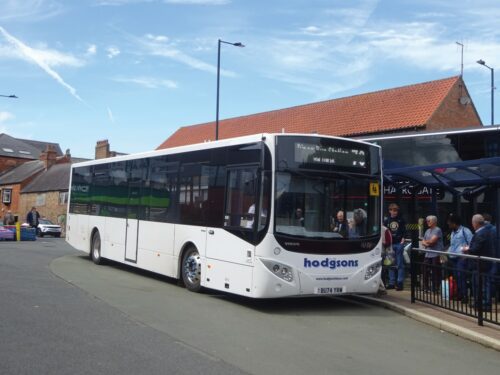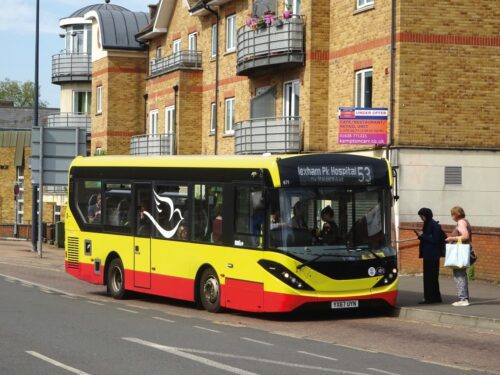
As part of the Government’s Spending Review, the Department for Transport (DfT) is to receive funding of £31.5 billion in 2028/29, whilst capital investment increases at an annual average real terms growth rate of 3.9% per year between 2025/26 and 2029/30, with increased local transport investment in England’s towns and cities promised, prioritising funding in the North and Midlands and giving local areas more control over how this money is spent. This will include the previously announced £15.6 billion in total by 2031-32 for the elected Mayors of some of our largest city regions via the Transport for City Regions (TCR) settlements to invest in zero-emission buses as well as trams and local rail. There will also be £2.3 billion for the Local Transport Grant for local transport improvements including bus lanes, cycleways and congestion improvement measures in places outside of those areas receiving TCR settlements, and a multi-year settlement for London, with £2 billion of funding promised between 2026/27 and 2029/30 for Transport for London’s capital renewals programme.
The Government is also promising £24 billion of capital funding between 2026/27 and 2029/30 to maintain and improve motorways and local roads, as well as around £750 million per year to maintain and improve bus services, including taking forward franchising pilots in areas including York and North Yorkshire and a new pilot scheme in Cheshire West and Chester. It has also pledged to extend the £3 bus fare cap, which was due to end this year, until March 2027.
Deputy leader of Cheshire West and Chester Council Karen Shore said the announcement was a fantastic opportunity to test the franchising model in a semi-rural borough, adding that the authority was one of a small number of councils which had been meeting with the Government over franchising in recent months, and that it was right that the area understood the different options
for franchising and bus operation models, including the option to continue under the existing system.
Industry response
Responding to the announcement, Chief Executive of the Confederation of Passenger Transport Graham Vidler said: “While most passengers already pay less than the £3 cap, we recognise that low headline fares are an important part of the mix to enhance buses’ appeal, so the industry will again work closely with government to make this latest extension work. Also needed from the Spending Review today is long term investment in buses across the country to maintain connectivity, tackle congestion and improve bus speeds, no matter where you live.”
Speaking from an operators’ perspective, Stagecoach CEO Claire Miles said: “We welcome today’s announcement on the extension and look forward to working with the Department for Transport to understand more details regarding the scheme. Affordable, accessible bus travel is vital for connecting people to jobs, education and essential services. This continued support will help our customers manage the cost of living while encouraging more people to choose more sustainable public transport options. Reliable, affordable transport is essential to our infrastructure and economy, and we’re proud to play our part in ensuring vital routes are served.”

A welcome move
Representing the voice of the passenger, Bus Users UK welcomed the extention of the £3 fare cap. Bus Users UK Director for England Lydia Horbury praised the move but stressed the need for a long-term commitment to bus services: “We hear directly from people who regularly tell us that affordable fares are not simply a convenience, they are a lifeline, particularly at a time when the cost of living continues to place real pressure on household budgets. While the continuation of the cap is good news in the short term, we must also recognise that fare caps alone do not resolve the long-term challenges facing the bus network. Without sustained, ring-fenced funding alongside fare support, rising operational costs could potentially force service reductions that could undermine the very accessibility the cap seeks to protect.
“There remains a pressing case for updating the national concessionary travel scheme. As we have consistently highlighted, allowing older and disabled passengers to travel at peak times would enable many to access work, education, medical appointments and volunteering roles more easily, fully supporting the principles of inclusion and equality that lie at the heart of public transport provision.”
Benefits for coaches
Meanwhile, the RHA welcomed the Government’s announcement of £590m for the new Lower Thames Crossing, a move which will help both the freight and coach sectors. RHA Director of Public Affairs & Policy England, said: “This pledge is a sign of the continuing commitment to one of the most transformative highways schemes in the country which will bring about significant benefits for our industry and the wider economy. The scheme is estimated to cost £9bn and we continue to await further information on the broader funding settlement for the scheme to ensure that the crossing is delivered in as efficient and cost-effective way as possible.
“The announcement on funding to improve bridges and structures is good news for the commercial vehicle sector. Weight restrictions and weak bridges present a significant challenge and can force hauliers and coach operators to take longer, less efficient routes. This increases fuel costs, journey times, and carbon emissions. The need for urgent investment is critical to ensure our industry can operate efficiently and safely.”

